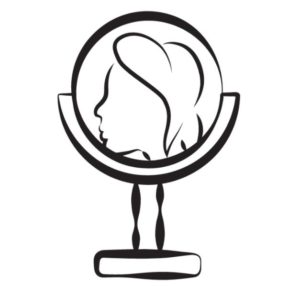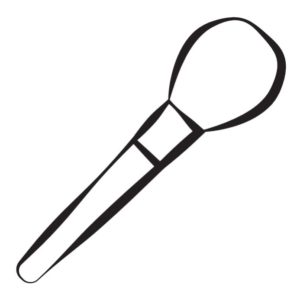Would you expect a pro football player to become the CEO of a successful cosmetics company? We didn’t. But, then, we listened to his story. And it made sense.
This is an interview by Bruce Smith, Carofin’s Vice President of Investor Development, with Chris Kolodziejski, CEO and Founder of Mosaic Distributors, a developer and distributor of fine eye and brow makeup that does business under the name of Chella. In it, Chris shares that, as an entrepreneur, you have to create a vision that you can be passionate about. Carofin has been fortunate enough to watch Chris grow his brand that now sells product in 15 countries. Read on to learn what an entrepreneur needs to succeed.
Key Takeaways:
- Chris’s vocation helps people transform themselves.
- Lessons from his childhood and athletic career have helped him build his company – and be nimble in the process.
- Visualize the outcome before you start, pivot as you go, and find your passion.
Chris, while our members are familiar with Chella, many don’t know much about you and the path that led you to your success. So, let’s start there. Tell us a little bit about yourself outside of work.
Well, Bruce, first, thank you so much for having me on Issuers and Investors. I’m honored to be here and to be a part of the Carofin family with you guys as bankers. It’s been a tremendous learning experience, and everybody on your team, frankly, has provided great mentorship along the way.
Outside of work, I’ve been blessed with a deep-rooted case of curiosity. I love to learn new things. For instance, I’ve spent a lot of time in the kitchen, learning how to produce tasty and nutritious meals!
I also love being active physically and mentally. I live in Calabasas, California and spend a lot of time outdoors, hiking, gardening, fishing, boating, scuba diving and boogie boarding.
But I’ve also focused my energies practicing yoga and meditation…really gaining a deeper understanding of just being in the present moment. I’ve spent too much time in the past looking through the rearview mirror. And, equally, worrying about the future. So that might be something your investors don’t know about me.
Thanks for those personal insights, Chris. However, I’m going to drag you back to the past for a moment. I think most of us admire what entrepreneurs do to start and grow a business. Our readers would like to know what it was like for you growing up. Can you point to lessons your parents taught that have stuck with you?
That’s such a big question, Bruce. There have been so many. I think I was extraordinarily blessed with my parents. Despite their divorce, my parents worked to keep the family unit together and give me a sense of family. For instance, we celebrated holidays together. Both were open, and both were very positive people who encouraged my sister and me from a very early age.
I remember very clearly something that I’ll share: I set an intention when I was in second grade. My dad and I were sitting on the couch watching the L.A. Rams play. “I’m going to play pro football one day,” because I just loved watching the game with him. The next year I begin playing Pop Warner football.
It was a huge goal, with a lot of hard work and times when I would want to give up. But, through force of will, I just kept grinding away. I was committed from the start.
My mom also taught me a lesson. After the divorce, Mom raised two kids working two jobs. But, like me, she made up her mind to change the path of her life. She ended up founding and building her own company. In ten years, she was able to successfully retire.
Those were tremendous lessons for me. This gets deep, but it’s true. It took some years before I understood what really made me happy. But I took from my childhood an understanding that success doesn’t get handed to you. You need a positive attitude and the will to succeed.
Going back to football, when I put on my helmet and pads, I became a different person. I felt different. When my mom started her company, I saw that same transformation.
I think for many, just being able to believe in themselves starts with an idea that germinates until they are ready to make it happen.
One of the reasons Chella has connected with a loyal, growing community is that our story is about personal empowerment. How makeup can help you change your look. It can help you feel more beautiful than, maybe, you’ve ever felt. The beautiful part of that evolution is when our customers realize they are beautiful people, with or without the makeup. Our makeup can help with that journey.

I suppose makeup can transform someone, just like your football uniform did for you. Chris, between college and founding Chella, did you have a plan in place?
After I got my degree in finance at the University of Wyoming, I fulfilled my second-grade intention. I was chosen in the second round of the draft by the Pittsburgh Steelers in 1984 and became their starting tight end. Fortunately, I suffered a career-ending injury in my 11th game of my rookie season. A shattered kneecap and a couple of severed ligaments ended my career in football.
I say fortunately because a lot of my teammates have experienced chronic traumatic encephalopathy, or CTE. They’ve suffered significant brain damage from all the concussions for playing for so long. Today, a lot of the athletes are retiring early because they realize the physical toll it’s taking on their body.
So, football was my first step. What stuck with me most is that you’re going to get knocked down a lot, and it’s going to happen in real-time. You’ve got to get back up and keep playing. Otherwise, you don’t have a chance.
As an entrepreneur, those lessons about pushing yourself harder and more than you thought possible have helped me survive. It’s what all entrepreneurs go through. At some point, you’ll fail, and that’s when you learn your most valuable lessons.
Winning isn’t because you’re so smart. A lot of it is hard work, and timing, things going your way, and the team that you’ve assembled. Generally, it is the failures that you’ve really got to own. Here’s where you glean the lessons, learning to shift and pivot to become more successful.
Yes, I suppose your take-away is a good lesson for any entrepreneur. Some of our issuers face times when money is tight, or product isn’t selling according to projections. Or COVID-19 happens. And they’ve all got to find a way through. Hats off to you, Chris.
That brings me to a different question. What inspired you to start your company – and in this industry? After all, it’s not often that a professional football career leads to founding a successful cosmetics company.
Yes, that’s for sure. I’m not comparing myself, but I think an interesting parallel is Max Factor who, I believe, was, a sergeant in the Marines. When he left, he also went into cosmetics. That might be as radical as it gets.
After the Steelers, I went into real estate development in Southern California. I had a successful career for about a dozen years developing mostly residential homes out of Malibu. Unfortunately, the great recession put the kybosh on that.
So, I went from selling my own properties to selling bank-owned REO. “Real estate owned,” or REO, is property owned by a lender — typically a bank, government agency, or government loan insurer — after an unsuccessful sale at a foreclosure auction. I also put together distressed financing arrangements for other companies. It was fun, but it was very transactional.
Then I started my own boutique investment banking firm putting deals together. The problem was that this was also transactional. What I loved about playing football was that I was building my business. Real estate development allowed me to bring my vision to life in the buildings I was developing.
So, I knew I wanted to build something which turned out to be a cosmetics brand. Seventeen years ago I founded the company when I was 43. I knew that I didn’t want to be in something cyclical like real estate, a lesson I had learned painfully. I wanted to try to find a path that was recession-proof.
After conducting extensive research, I narrowed it down to several businesses, one of which was liquor. But cosmetics was one that intrigued me. There was clinical efficacy to ingredients that could help resolve fine lines and wrinkles. Here I could build a brand and create products that really worked.
The day you opened your doors, did you know you were going to be a success?
You never know until you get the first sale. We spent about six months doing research, building, and testing products with family and friends. With their input, we launched with five products essential to a skincare regimen, a cleanser, a serum, a morning cream, an eye cream, and an evening cream.
This was right around the holidays. My son was in high school when we launched at his high school gymnasium. We started with a little Christmas holiday table in the gym with a bunch of other local businesses. And, lo and behold, I sold my first ninety dollars of product. And I said, “Yeah, I think we can make this work.” So, you never know until you know. But yes, we were confident that we were going to be able to do it; that first sale really helps, though.



Well, from selling five products in a high school gymnasium at the start to now, you’ve made some serious progress. How many products do you have now?
We’ve got about sixty-five products.
Listen, you’ve chosen one of the most difficult roles I can imagine. You’ve got to be a visionary. You’ve got to be determined and have the drive to execute. What would you like to share with other potential entrepreneurs? What does an entrepreneur need to succeed?
To begin, you’ve got to make sure that this product or service is something that a target market wants – the demand has got to exist. You may think you have the greatest idea in the world. But you need to test market, listen to the feedback, and be open to pivoting.
Next, I think you need to be positive every single day. Believe that you’re going to make this successful no matter what — and not just through force of will.
I think you really nailed it with vision, Bruce. An entrepreneur who is about to launch a company must have a vision.
But it’s even more than simply vision: I think it must be tied to something deeper. You have to create a vision that you can be passionate about, so that your story becomes organic. It took me 13 years before I had our story.
It really is borne out of my desire to help and connect with our customers by producing exemplary products.
You asked me earlier why I started the company. Being recession-proof wasn’t my motivation. That was an important ingredient. It took me a while to realize that it was because I became passionate about empowering people to transform their lives. That has driven me and the company’s direction ever since.
So, there’s no simple answer to your question. Start with a vision. One that you’re passionate about. Where you have an emotional connection. Listen to your market and be ready to pivot to meet their needs. Finally, you’ve got to be 100% committed to execute your plan. Execution is everything. With a million great ideas in the world, you’ve got to be able to deliver yours, and that requires organization and superior teamwork.
You sound like my golf coach. You got to have the vision. You’ve got to see the flight of the ball before you start your swing. You’re right, but that may trivialize the answer that you just gave me, Chris.
No, not at all. I think your coach nailed it perfectly.
I agree. Now, you must face setbacks…suppliers don’t deliver on time, or a big contract doesn’t work out. There’s always something that comes up in business, right? And, as you say, you must be flexible to succeed. So, when you get up in the morning, what drives you to keep moving forward? What would you say is the most rewarding part of your job?
Great question. I think, honestly, the most rewarding part of my job is realizing the power that we have as a brand to connect to our customers in a meaningful way. I’m going to be very blunt about this. I’m nobody — just the guy who owns Chella Cosmetics.
When I was at the University of Wyoming and I knew the Dallas Cowboys were going to come watch me practice, that made me the happiest guy in the world. My senior year, they flew up to scout me. That validated all the hard work I had put into football. The Pittsburgh Steelers followed. Every week, some other team’s rep. would come in to watch me practice. And that motivated me to play at an even higher level.
So, here’s the parallel. If I acknowledge a young make-up artist’s work and let him or her know, genuinely, how much I am inspired by their work using our products, they feel validated. It’s positive energy, positive reinforcement. In my view, nothing great ever was accomplished by thinking negatively, right? To succeed, you must have a positive outlook and inspire others to do likewise.
Yes, we all have setbacks. But the reason I jump out of bed each morning is being able to communicate, inspire and lift people up with positive affirmations, energy, and great products. To me, that means more than anything.
Now, we also want to provide a return on investment for our investors. Despite the challenges we’ve faced with COVID, we’ve managed to find a way to grow the top line last year. 2021 should be a record year for us.
You and your team have invested a tremendous amount of energy in me and my team. We’re proud of our success, growing from five products to 65, from selling in five countries to 15 countries, to see revenues in the fourth quarter last year be up ninety-nine percent year over year.
That’s winning. In the next three to five years, we hope our numbers are going to lead to a very nice liquidity event for our investors.
Those are my two biggest motivators every morning. That’s what I care the most about.
Well, yours is a great story, Chris. Thank you for sharing your insights with us. We’ve been proud to work with you and fortunate to have you as one of our partners.
You can learn more about Chris’s company, Chella, visit chella.com.
Related Reading:
- Carofin’s Beauty Products — Why Investing Makes Sense
- Carofin’s Evaluating Venture Investments
